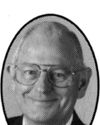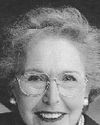On June 19, 1996 following the tabling of the first report of the Standing Committee on Justice and Legal Affairs entitled "The Heritage Front Affair: Our View", the hon. member for Surrey-White Rock-South Langley raised a question of privilege. She alleged that the standing committee's subcommittee on national security had been misled by the Security Intelligence Review Committee, which I will refer to as SIRC, in connection with the subject matter of this report and that SIRC had shown contempt for the House of Commons by knowingly providing inaccurate information to the subcommittee. Further, she argued SIRC had provided inaccurate information to the solicitor general thereby causing him to table an incomplete report in the House on December 15, 1994.
After hearing additional comments from the hon. member for Calgary Centre, the chief government whip, and the hon. member for Gander-Grand Falls, the Acting Speaker took the matter under advisement.
Before addressing the question of privilege itself, may I preface my remarks with a comment.
When members raise a question of privilege in the House, I take it as an extremely important matter, as I am sure all hon. members do. Privilege exists in this institution to ensure that members are able to carry out their duties without interference. A breach of privilege is so serious that we expect it to be brought to the attention of the House at the first opportunity. Then, if in the opinion of the Chair there is found to be a prima facie breach of privilege, the matter will be given precedence over all other business before the House. A motion will be moved by the member raising the question of privilege and it will be up to the House to decide what to do with the matter. That said, it must also be recognized that time is a precious commodity in this Chamber.
I would request therefore that when raising questions of privilege members keep both of those ideas in mind and attempt to explain the facts of their case as succinctly as possible. This should be done by indicating at the outset which privileges have been breached and how they have been breached, without entering into debate and repeating arguments either already made before the House or, as in the present case, contained in a committee report presented to the House.
Our tradition dictates that when matters of privilege arise out of the proceedings of a committee, the committee should report the matter to the House in order for the House to be seized with it.
Beauchesne's sixth edition citation 107 explains that breaches of privilege related to committee deliberations may be dealt with only by the House itself on report from the committee. Only in the most extreme circumstances would the Chair of its own volition deal with matters arising from the proceedings of a committee.
The standing committee has reported to the House on the Heritage Front affair. It has not, however, reported to the House that it views that any contempt has been made by Security Intelligence Review Committee in connection with the committee's study.
I have carefully reviewed the member's arguments. It appears the member clearly has a dispute as to the facts presented to the committee. However, in my opinion this is a matter for debate and not a question of privilege.
Should the member wish to return to the committee with the matter and the committee opt to report to the House on this aspect of the question, the House at that time may choose to deal with it.
In addition, the member for Surrey-White Rock-South Langley has placed on notice a motion for concurrence in the first report of the Standing Committee on Justice and Legal Affairs.
I respectfully suggest she will have ample opportunity to bring her concerns forward when this motion is moved for the consideration of the House.
I thank all hon. members for their participation in the discussion of this question of privilege.













